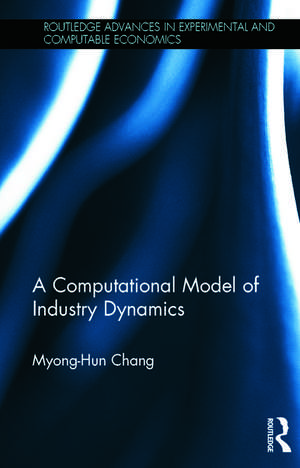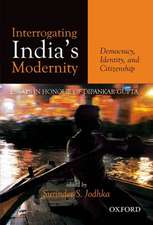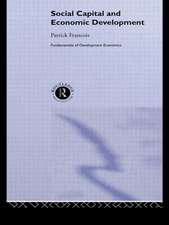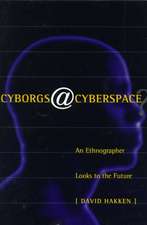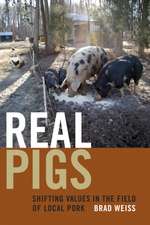A Computational Model of Industry Dynamics: Routledge Advances in Experimental and Computable Economics
Autor Myong-Hun Changen Limba Engleză Hardback – 15 ian 2015
This book endeavours to explain many well-documented aspects of the evolution of industries over time. It uses an agent-based computational model in which artificial industries are created and grown to maturity in silico. While the firms in the model are assumed to have bounded rationality, they are nevertheless adaptive in the sense that their experience-based R&D efforts allow them to search for improved technologies. Given a technological environment subject to persistent and unexpected external shocks, the computationally generated industry remains in a perennial state of flux. The main objective of this study is to identify patterns that exist in the movements of firms as the industry evolves over time along the steady state in which the measured behaviour of the firms and the industry stochastically fluctuate around steady means.
The computational model developed in this book is able to replicate many of the stylized facts from the empirical industrial organization literature, particularly as the facts pertain to the dynamics of firm entry and exit. Furthermore, the model allows examination of cross-industry variations in entry and exit patterns by systematically varying the characteristics of the market and the technological environment within which the computationally generated industry evolves. The model demonstrates that the computational approach based on boundedly rational agents in a dynamic setting can be useful and effective in carrying out both positive and normative economic analysis.
| Toate formatele și edițiile | Preț | Express |
|---|---|---|
| Paperback (1) | 220.13 lei 6-8 săpt. | |
| Taylor & Francis – 30 iun 2020 | 220.13 lei 6-8 săpt. | |
| Hardback (1) | 829.97 lei 6-8 săpt. | |
| Taylor & Francis – 15 ian 2015 | 829.97 lei 6-8 săpt. |
Preț: 829.97 lei
Preț vechi: 1219.68 lei
-32% Nou
Puncte Express: 1245
Preț estimativ în valută:
158.82€ • 167.47$ • 132.22£
158.82€ • 167.47$ • 132.22£
Carte tipărită la comandă
Livrare economică 11-25 ianuarie 25
Preluare comenzi: 021 569.72.76
Specificații
ISBN-13: 9780415706841
ISBN-10: 041570684X
Pagini: 160
Ilustrații: 100
Dimensiuni: 138 x 216 x 15 mm
Greutate: 0.29 kg
Ediția:1
Editura: Taylor & Francis
Colecția Routledge
Seria Routledge Advances in Experimental and Computable Economics
Locul publicării:Oxford, United Kingdom
ISBN-10: 041570684X
Pagini: 160
Ilustrații: 100
Dimensiuni: 138 x 216 x 15 mm
Greutate: 0.29 kg
Ediția:1
Editura: Taylor & Francis
Colecția Routledge
Seria Routledge Advances in Experimental and Computable Economics
Locul publicării:Oxford, United Kingdom
Public țintă
Postgraduate and UndergraduateCuprins
1. Non-Equilibrium Dynamics in the Evolution of Industries 2. Models of Industry Dynamics 3. A Dynamic Model of Schumpeterian Competition 4. Growing an Industry in silico 5. Shakeouts: Limited Foresight, Technological Shocks, and Transient Industry Dynamics 6. Industry Dynamics in the Steady State: Between-Industry Variations 7. Firm Dynamics in the Steady State: Within-Industry Variations 8. Cyclical Industrial Dynamics with Fluctuating Demand 9. Conclusion
Descriere
This book endeavours to explain many well-documented aspects of the evolution of industries over time. It uses an agent-based computational model in which artificial industries are created and grown to maturity in silico. The main objective of this study is to identify patterns that exist in the movements of firms as the industry evolves over time along the steady state in which the measured behaviour of the firms and the industry stochastically fluctuate around steady means.
